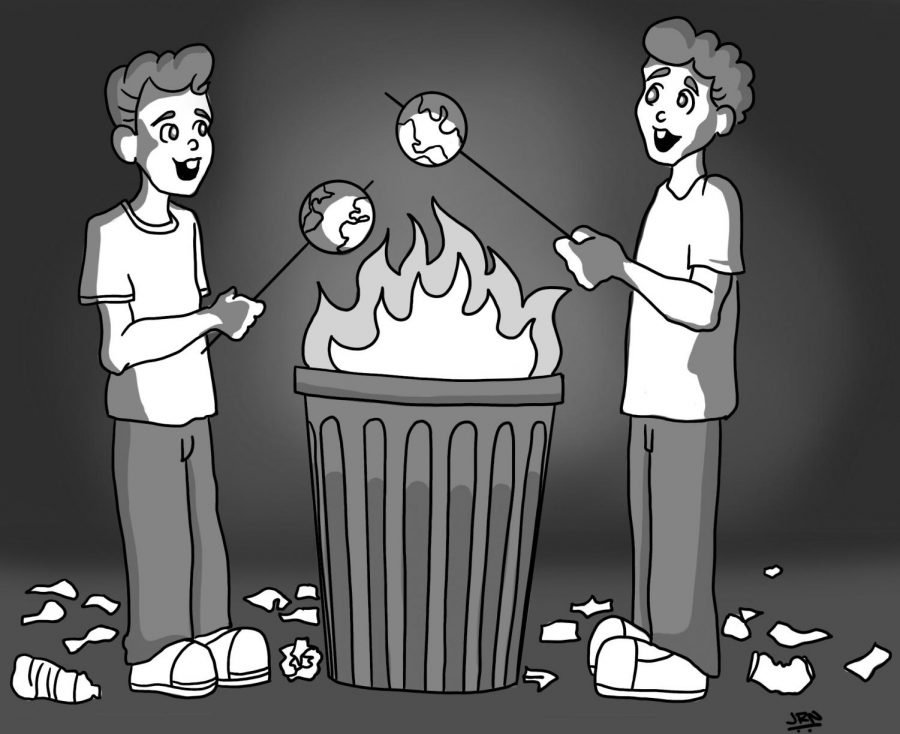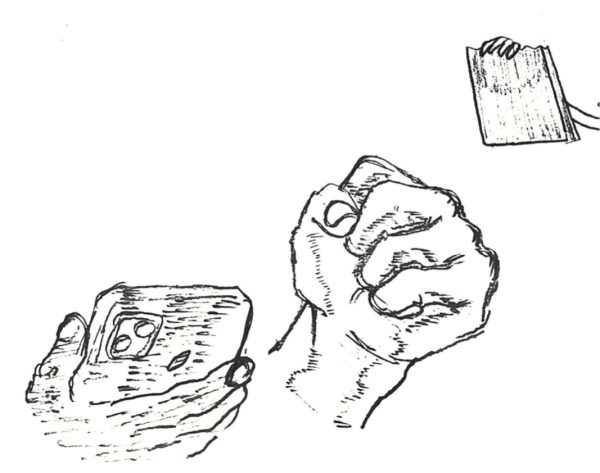We are all the Problem
October 17, 2019
“Insanity is doing the same thing over and over again and expecting different results.” said Albert Einstein, and he was right.
Climate change is a huge issue these days. Yes, we are all contributing to it. And if you are thinking: “No, I don’t. I am an activist, I went to the walk out, I post climate change awareness articles on Instagram and I don’t even drive.” Well, let me ask you: Do you eat meat or dairy? Do you buy products in plastic packages?
Animal agriculture and meat consumption are significant contributors to global warming. 60% of the total land in the world is dedicated to cows, according to globalagriculture.org. Methane impacts 34 times more than CO2, according to United Nations scientists. That is a big factor in global warming, but far less so than fossil fuel combustion which is considered to be the actual “monster” in this problem, since for every ton of coal burned, approximately 2.5 tonnes of CO2e are produced.
It is fair to blame big companies and factories for polluting and messing up the Earth, but guess who is buying and consuming their products? Exactly. Don’t waste your voice shouting that you want change and at the same time feed their pockets. “But wait, are you telling me to stop buying basic articles that I need in my daily life to survive?”
Well I don’t think a Coke or a bag of Doritos are too necessary to survive. Not only because their packagings are significant pollutants, but if you are thinking: “ Well, I mean it is cheap and it might help me get through the day.” The fact that it is filling up your stomach doesn’t mean it’s good for you. Just imagine the quality of ingredients they put in those products so they can sell them at an extremely low price. That is scary. But here we go, that is an education matter.
“Wait, what does a bag of Doritos has to do with climate change?” Let me tell you, believe it or not, it is all related. The oxygen you breath which is 21% percent of the air, comes from plants, trees, algae by a process called photosynthesis that you should probably know already. Palm oil plantations are reputed to be a major factor of deforestation amongst others, according to the Scientific American report. It is used in most of the cheapest food products in the market. What do palms have to do with Doritos? Well, not only Doritos, but there are a lot of products that contain palm oil.
Try this, go to your closest store and read the ingredients of a random product. It will be surprising if you don’t see the word “palm oil” or “vegetable oil.” And you’re probably saying: “Wait, vegetable oil is different, my mom cooks with it.” Well, palm oil is a type of vegetable oil. But vegetable oil sounds better, right? Of course it is not realistic to stop consuming these products, but at least be conscious about it.
Plastic waste is also a huge issue, not only because it takes 450 years to decompose, but because it also releases methane which is one of the biggest factors that contribute to this crisis.
There are so many factors that contribute to climate change that I will not be able to name them all, even in a hundred pages.
There are many alternatives to decrease your carbon footprint emissions and live a healthier lifestyle. No, I am not asking you to go vegan and bike to school. That’s for you to decide. Read, get informed and involved and most importantly: Act. Knowledge is power. And the less educated you are, the more likely you are to ignore this call to action.
Here are seven things you can do to reduce your carbon footprint emissions:
- Minimize driving by setting concrete reduction goals: walking, biking, carpooling and using public transit. Unless you use an electric car.
- Choose organic and non-gmo products. Shop at your local farmers market or from local vendors. Read the labels in the products you buy and be aware of the quality of food and ingredients you are consuming. Not only with food, but also cosmetics and beauty products. The less processed the better.
- Reduce meat and dairy consumption. There are so many options nowadays, that there are no excuses.
- Reduce water use. For teenagers: Take shorter showers and turn the water off while brushing your teeth. For your parents: Buy low flow shower and faucet heads, water efficient toilets/washing machines/dishwashers, check for leaks, buy native drought-tolerant plants, etc.
- Reduce your plastic footprint: Carry reusable shopping bags, bring your own mug when you buy your morning coffee or smoothie, buy from bulk bins as often as possible, carry your own containers, utensils, and travel mug for take-out food and leftovers.
- Unplug unused electronics to minimize standby power consumption, and talk to your parents about installing solar panels on your home.
- Encourage and support greenhouse-reducing practices in your community.Support climate action organizations. Research the companies you buy from (especially ongoing purchases). If they aren’t reducing greenhouse gases themselves and supporting action on climate change, switch to a company that is.










